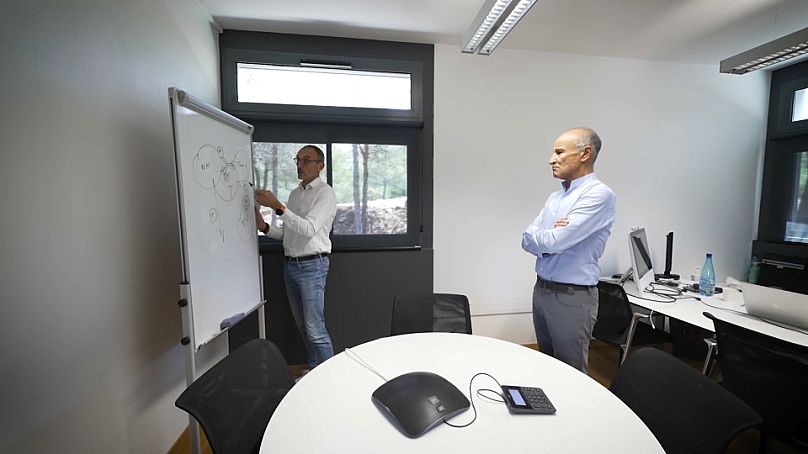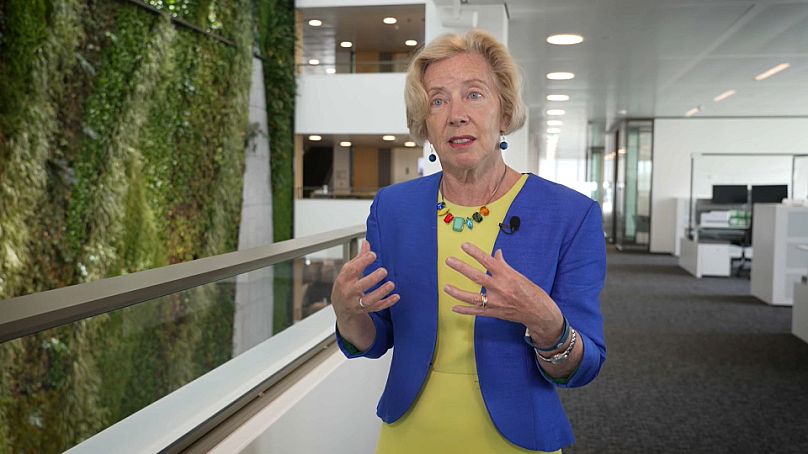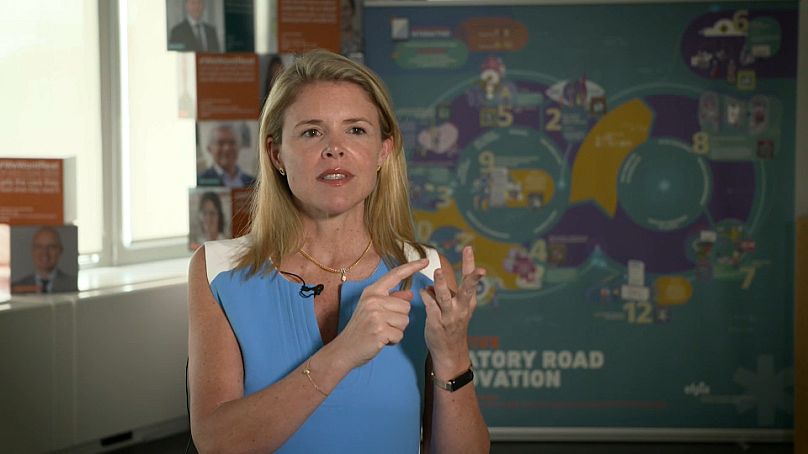In this latest episode of Smart Health, we ask why Europe is lagging behind other countries when it comes to medical innovation, and find out what steps industry leaders are taking to turn the tide.
A laboratory in France's southern port city of Marseille has opened its doors to new, state-of-the-art therapies against cancer.
Some 200 people work here, in what is called "cancer immunotherapy." Their objective is to induce our own immune systems to recognise and eliminate tumour cells.
"What we do is to stimulate the immune system, which is the body's set of defences against viruses, bacteria, but also against cancer," explained Eric Vivier, the Scientific Director at Innate Pharma.
"We try to stimulate this immune system so that in return, it can take care of cancer. All cancers; whether leukemia, lymphoma or solid tumors."
The price of innovation
Founded in 1999, the company is developing a number of oncology treatments. One of them, against lung cancer, is already in phase three of its clinical trials - edging ever closer to its final authorisation.
Like in other European SMEs, innovation is the ultimate goal. But the road is long and often winding.
"The development of a medicine is a very long process, which in the best case can last around ten years," Innate Pharma's CEO, Mondher Mahjoubi told Smart Health.
"It is an expensive process. A product that goes from preclinical to market, costs at least €1 billion. And finally, it's a risky process, in the sense that the failure rate is extremely high. Out of 100 molecules selected, there are four or five that make it."
This company is actively contributing to the €37 billion annual research investments and around 800,000 direct jobs that pharmaceutical innovation is creating in Europe.
Yet the European Union keeps losing ground against other innovative superpowers.
In the period 2011-2015, there were 89 new chemical and biological entities made in the United States. By 2016-2020, that number had increased to 138,according to a report by the European Federation of Pharmaceutical Industries and Associations.
In the period 2011-2015, there were 75 new chemical and biological entities in the European Union. However, by 2016-2022, that number had fallen to 64.
Improving regulatory support
In an effort to turn the tide, the European Commission has proposed new regulatory incentives so big medicine developers, SMEs and smaller actors find a more adapted, accessible, flexible, simple and cost-efficient ecosystem to invest in.
For Advanced Therapy Medicinal Products (ATMPs), the reform also proposes providing the European Medicines Agency with enhanced regulatory support.
The Agency is already improving its tools to ensure that innovations translate into real products for patients, says its Director General, Emer Cooke.
"We try to do some horizon scanning. That means that we look and see what might be coming: are we ready for it? Is the regulatory system ready for it? Have we got the right expertise? Is this something that is needed? Is this an unmet medical need," she told Smart Health.
"We try and engage early with developers. We try and point them in the right direction. So we do that through what we call "business pipeline meetings", where we get a flavour of what's coming. We also have what we call an "Innovation Task Force", where we invite anyone with a new idea to come to us, talk about it and we try to advise as to what the right path is".
The European Federation of Pharmaceutical Industries and Associations says there is room for improvement. Its Director General, Nathalie Moll, demands even bolder measures.
"Already today we've lost about 25 % of our global R&D investment in Europe in the last 20 years. It has decreased by one quarter in the last 20 years, and it has gone to the US and China," she explained.
"If we want to recover that, we need to give investors the conditions of predictability and attractiveness, and at the moment, Europe is not there and that is very concerning. Because where research happens, matters. Because research means clinical trials, means patients getting access straight away to medicines. It means the whole healthcare system getting used to the new innovation."
Back in the laboratory in Marseille, researchers at Innate Pharma hope their extensive efforts on a new treatment against lung cancer will soon pay off.
"We are in the final phase. We are testing the effectiveness of a molecule that we've been producing for years on a very large number of patients," said Eric Vivier at Innate Pharma.
"We expect the results in the coming months. But indeed, it has been a long time coming".













